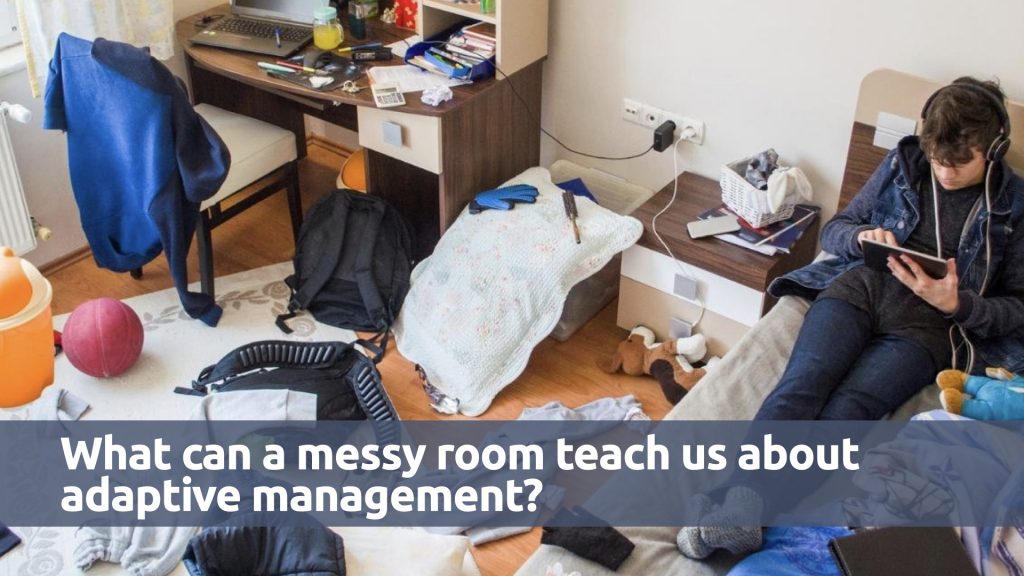Messy Rooms and Adaptive Challenges
We go through life solving problems, but we often skip over a critical threshold question: Is this a problem we know how to solve? Or is it a challenge that we’ve never encountered before?
Let’s explore this distinction with a simple example.
If you’ve ever been a parent, you’ve probably encountered the Messy Room Problem. When your child is six or seven, you know how to solve this problem. You have that power.
And you have options. You can rely on either carrots or sticks.
You can set up a weekly allowance tied to a list of chores that includes cleaning your room (a carrot). Or, you can say something like, “If you don’t clean up your room, you are grounded” (a stick). Most of the time, one of these options will work.
However, the nature of the problem shifts when your child becomes a teenager and enters adulthood. Your power begins slipping away.

In this situation, you can’t easily use your authority as a parent to solve the problem.
The nature of the problem shifts from one that you know how to solve to a challenge you’ve never really encountered before. Your teenager no longer pays much attention to your carrots and sticks.
Now, you need to innovate and come up with a better solution.
Your only path forward is to develop a solution through collaboration. You have to work together to come up with a solution. To do that, you have to have a conversation. You might confess that you, too, often had a messy room as a teenager.
But as you grew into an adult, you realized that organizing yourself to be a bit neater helped you. You didn’t waste time trying to find stuff.
You might even suggest that you learned something from reading Admiral McRaven’s book, “Make Your Bed: Little Things That Can Change Your Life…And Maybe the World.”
You get the idea.
With technical problems, we can use established protocols, our expertise, and sometimes our authority to solve them.
However, adaptive problems are different. We can only find solutions through conversation and collaboration.
The story is inspired by my colleague, Scott Hutcheson, who confronted this situation with his eldest son.
So, here’s another important mind shift.
When facing a “We don’t know how” challenge, ditch the problem-centric mindset and focus on seeking opportunities instead.
Strategic Doing teaches you how to design and guide conversations to generate solutions to “We don’t know how” challenges. You can’t solve these complex challenges through your power or authority.
But you can use Strategic Doing to generate high-performance collaborations that move people toward measurable outcomes. Along the way, you generate and learn new, practical knowledge.
And you make adjustments as you learn by doing.
Learn more about Strategic Doing by joining our open community. It’s free.
Just click on this link to start. Then, once you are in the community, head over to the EVENTS tab and pick up the ZOOM link for each Friday’s event.
Learn more and make connections at our Strategic Doing Talks every Friday at 9 AM New York/3 PM CET.